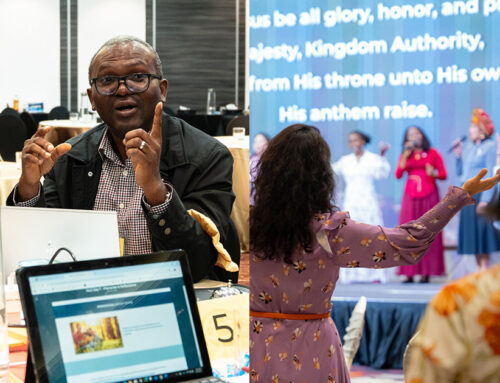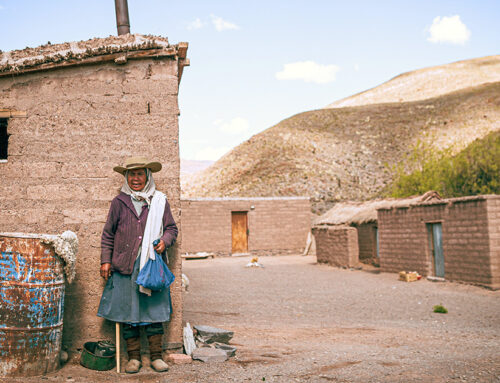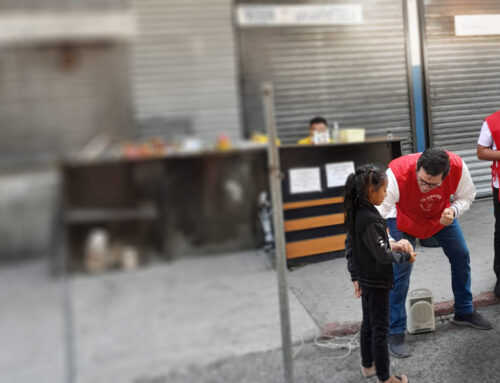A Celebration of Redemption and Transformation
More than 660 million people live in Latin America and the Caribbean, where more than 448 different languages are spoken. Of this population, 49 million live in Gospel poverty, from marketplace leaders within the bustling cities to unreached people groups in remote villages. There are 34,976 Haggai leaders equipped to end Gospel poverty here, working as doctors, lawyers, radio personalities, politicians, church planters, professors, nonprofit directors, CEOs, and more.
In September, Haggai leaders representing 19 of the 33 nations in Latin America and the Caribbean gathered in Buenos Aires, Argentina, for a four-day event to celebrate the work their national ministries have done across this region of the world.
Called CALL-H (Cumbre de América Latina and El Caribe de Líderes Haggai, or Summit of Latin America and the Caribbean of Haggai Leaders), the hope was to bring together the Haggai leaders and national ministries on the continent.
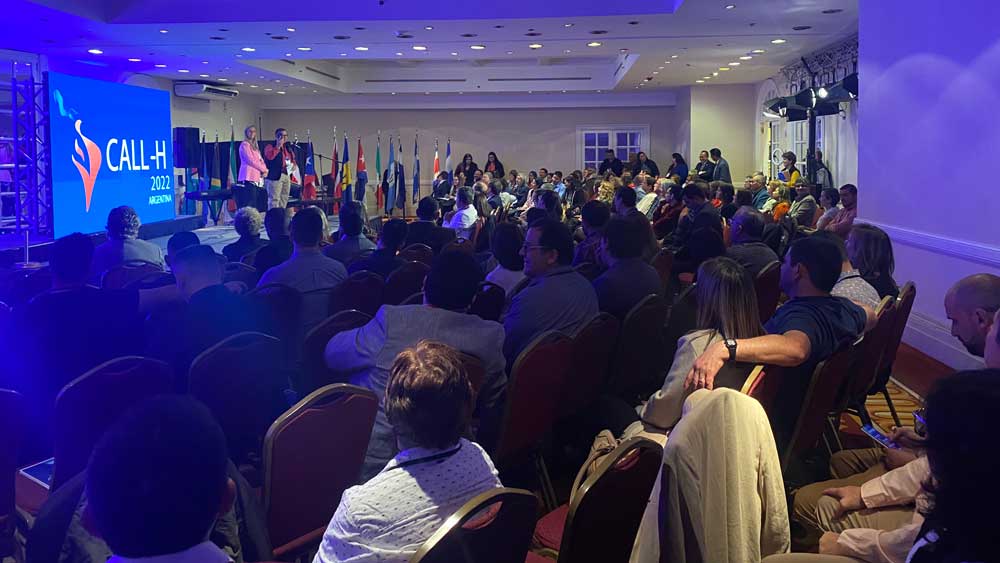
Byron López, Haggai’s regional director in Latin America, says the planning team had four objectives:
1. Promote re-gathering and re-connection among leaders after COVID-19 restrictions, based on the strong work promoting unity and community feeling through all the virtual meetings achieved during the last 30 months.
2. Create opportunities and spaces to share good practices, share and measure the impact on their own countries applying specific actions, and learn from each other.
3. Build dreams, define goals, and prepare actions from national associations, facilitators, and key leaders.
4. Connect subregions to promote collaborative actions to enter unreached sectors of society.
It was a celebration in every way — Haggai leaders kicked off the gathering with a flag ceremony, with representatives displaying their countries’ flags one by one like you might see in the Olympics, cheering each other on and blessing and praying for each nation in line. During the long weekend, they gathered in small groups to encourage and pray for each other; sat across from each other to learn about different countries’ unique contexts and strategies; and represented and honored their cultures through vibrant musical and dance performances.
“We based our program and schedule on sharing real testimonies and learning directly from people on the ground instead of having plenary speakers,” Byron says. “We tried to honor those ‘not-so-famous’ Haggai leaders, promoting their jobs and taking lessons from them in workshops.”
Haggai leaders in Latin America and the Caribbean have created strong national ministries that span the continent. Multiple men and women attended CALL-H because of the faithfulness of the Haggai leader who equipped them, and many had powerful stories of God at work in their lives and ministries.
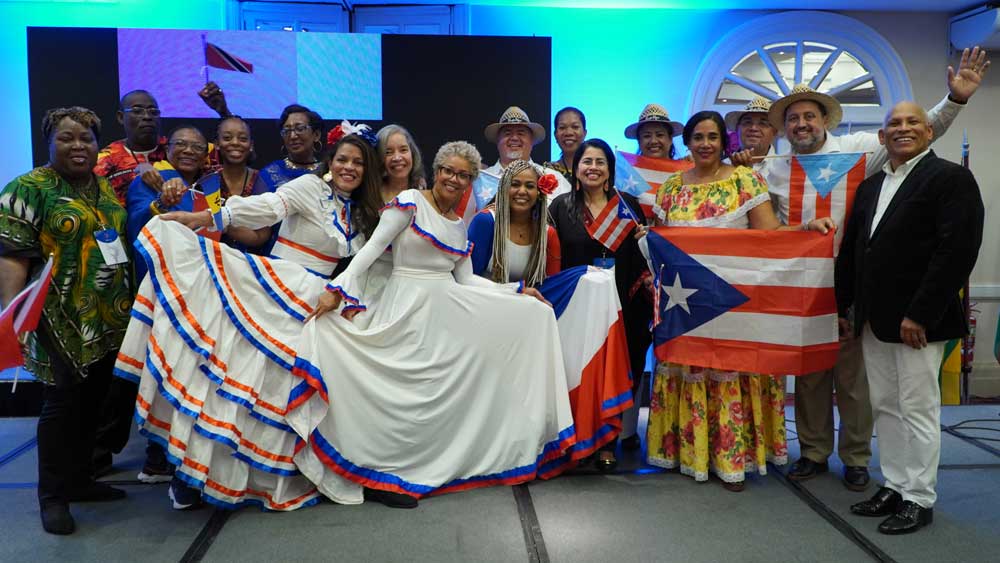
“The experience has been enlightening,” said Haggai leader Joel Rivera of Puerto Rico, who was equipped through the Virtual Haggai Leader Experience in 2020. “We truly have a clearer vision of how we are going to work in our nation. We have a better focus, and we are walking toward a better Puerto Rico.”
These leaders are meeting practical needs through a food provision program called “Arbol de Vida” (Tree of Life). Arbol de Vida leaders care for single pregnant women who have nowhere to turn. They also invest in young people, knowing they are the future of the faith. Many are also involved in prison ministries, sharing the love of Christ with detainees.
One attendee who was equipped by a Haggai leader is the founder of one of these prison ministries. His son was murdered, but through this heartbreaking experience, God led him to share the Gospel with inmates. Obeying God’s leading, he met the very man who killed his son, and through their meeting, both experienced forgiveness and healing. Another story of hope from behind prison walls includes a Haggai leader who was a director of a prison and led an inmate to Christ. When the inmate was released, the two men created a prison ministry that is now thriving. The men sat side-by-side at CALL-H, a testament to God’s powerful redemption.
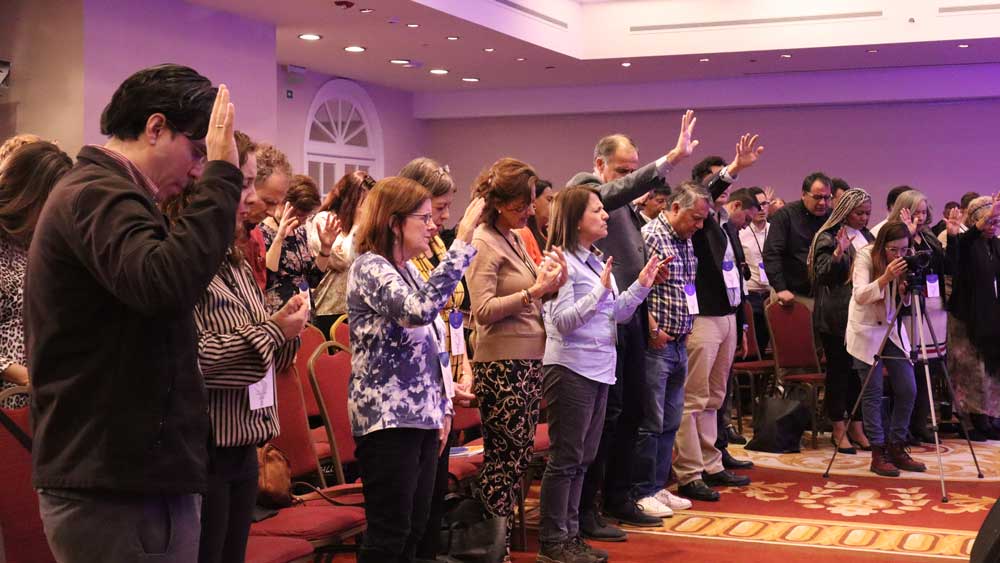
Leaders from all over the continent renewed the commitments they made during their Haggai equipping and refocused their visions for reaching the people God has uniquely placed in their lives.
“I have a great understanding of all the possibilities we have region-wide to be able to transform Latin America,” said national seminar facilitator Jaime Pabon of Colombia. “I also face the challenge of seeing how we can take concrete actions in different ways as it was illustrated by the different representatives of the countries. And also, a commitment. A commitment with God and with the generations, with our nations, that now is the time to act and not just see others make things a reality but become agents of change so we can make things happen.”
Through national ministries, leaders are using discipleship and continued equipping to make an impact that is hard to fathom. From Latin America and the Caribbean to the Middle East, Asia, and Africa, Haggai leaders are committed to changing their nations for the sake of the Gospel. Together, we are ending Gospel poverty.
Written by Bethan Mingle
A Celebration of Redemption and Transformation
More than 660 million people live in Latin America and the Caribbean, where more than 448 different languages are spoken. Of this population, 49 million live in Gospel poverty, from marketplace leaders within the bustling cities to unreached people groups in remote villages. There are 34,976 Haggai leaders equipped to end Gospel poverty here, working as doctors, lawyers, radio personalities, politicians, church planters, professors, nonprofit directors, CEOs, and more.
In September, Haggai leaders representing 19 of the 33 nations in Latin America and the Caribbean gathered in Buenos Aires, Argentina, for a four-day event to celebrate the work their national ministries have done across this region of the world.
Called CALL-H (Cumbre de América Latina and El Caribe de Líderes Haggai, or Summit of Latin America and the Caribbean of Haggai Leaders), the hope was to bring together the Haggai leaders and national ministries on the continent.

Byron López, Haggai’s regional director in Latin America, says the planning team had four objectives:
1. Promote re-gathering and re-connection among leaders after COVID-19 restrictions, based on the strong work promoting unity and community feeling through all the virtual meetings achieved during the last 30 months.
2. Create opportunities and spaces to share good practices, share and measure the impact on their own countries applying specific actions, and learn from each other.
3. Build dreams, define goals, and prepare actions from national associations, facilitators, and key leaders.
4. Connect subregions to promote collaborative actions to enter unreached sectors of society.
It was a celebration in every way — Haggai leaders kicked off the gathering with a flag ceremony, with representatives displaying their countries’ flags one by one like you might see in the Olympics, cheering each other on and blessing and praying for each nation in line. During the long weekend, they gathered in small groups to encourage and pray for each other; sat across from each other to learn about different countries’ unique contexts and strategies; and represented and honored their cultures through vibrant musical and dance performances.
“We based our program and schedule on sharing real testimonies and learning directly from people on the ground instead of having plenary speakers,” Byron says. “We tried to honor those ‘not-so-famous’ Haggai leaders, promoting their jobs and taking lessons from them in workshops.”
Haggai leaders in Latin America and the Caribbean have created strong national ministries that span the continent. Multiple men and women attended CALL-H because of the faithfulness of the Haggai leader who equipped them, and many had powerful stories of God at work in their lives and ministries.

“The experience has been enlightening,” said Haggai leader Joel Rivera of Puerto Rico, who was equipped through the Virtual Haggai Leader Experience in 2020. “We truly have a clearer vision of how we are going to work in our nation. We have a better focus, and we are walking toward a better Puerto Rico.”
These leaders are meeting practical needs through a food provision program called “Arbol de Vida” (Tree of Life). Arbol de Vida leaders care for single pregnant women who have nowhere to turn. They also invest in young people, knowing they are the future of the faith. Many are also involved in prison ministries, sharing the love of Christ with detainees.
One attendee who was equipped by a Haggai leader is the founder of one of these prison ministries. His son was murdered, but through this heartbreaking experience, God led him to share the Gospel with inmates. Obeying God’s leading, he met the very man who killed his son, and through their meeting, both experienced forgiveness and healing. Another story of hope from behind prison walls includes a Haggai leader who was a director of a prison and led an inmate to Christ. When the inmate was released, the two men created a prison ministry that is now thriving. The men sat side-by-side at CALL-H, a testament to God’s powerful redemption.

Leaders from all over the continent renewed the commitments they made during their Haggai equipping and refocused their visions for reaching the people God has uniquely placed in their lives.
“I have a great understanding of all the possibilities we have region-wide to be able to transform Latin America,” said national seminar facilitator Jaime Pabon of Colombia. “I also face the challenge of seeing how we can take concrete actions in different ways as it was illustrated by the different representatives of the countries. And also, a commitment. A commitment with God and with the generations, with our nations, that now is the time to act and not just see others make things a reality but become agents of change so we can make things happen.”
Through national ministries, leaders are using discipleship and continued equipping to make an impact that is hard to fathom. From Latin America and the Caribbean to the Middle East, Asia, and Africa, Haggai leaders are committed to changing their nations for the sake of the Gospel. Together, we are ending Gospel poverty.
Written by Bethan Mingle
A Celebration of Redemption and Transformation
More than 660 million people live in Latin America and the Caribbean, where more than 448 different languages are spoken. Of this population, 49 million live in Gospel poverty, from marketplace leaders within the bustling cities to unreached people groups in remote villages. There are 34,976 Haggai leaders equipped to end Gospel poverty here, working as doctors, lawyers, radio personalities, politicians, church planters, professors, nonprofit directors, CEOs, and more.
In September, Haggai leaders representing 19 of the 33 nations in Latin America and the Caribbean gathered in Buenos Aires, Argentina, for a four-day event to celebrate the work their national ministries have done across this region of the world.
Called CALL-H (Cumbre de América Latina and El Caribe de Líderes Haggai, or Summit of Latin America and the Caribbean of Haggai Leaders), the hope was to bring together the Haggai leaders and national ministries on the continent.

Byron López, Haggai’s regional director in Latin America, says the planning team had four objectives:
1. Promote re-gathering and re-connection among leaders after COVID-19 restrictions, based on the strong work promoting unity and community feeling through all the virtual meetings achieved during the last 30 months.
2. Create opportunities and spaces to share good practices, share and measure the impact on their own countries applying specific actions, and learn from each other.
3. Build dreams, define goals, and prepare actions from national associations, facilitators, and key leaders.
4. Connect subregions to promote collaborative actions to enter unreached sectors of society.
It was a celebration in every way — Haggai leaders kicked off the gathering with a flag ceremony, with representatives displaying their countries’ flags one by one like you might see in the Olympics, cheering each other on and blessing and praying for each nation in line. During the long weekend, they gathered in small groups to encourage and pray for each other; sat across from each other to learn about different countries’ unique contexts and strategies; and represented and honored their cultures through vibrant musical and dance performances.
“We based our program and schedule on sharing real testimonies and learning directly from people on the ground instead of having plenary speakers,” Byron says. “We tried to honor those ‘not-so-famous’ Haggai leaders, promoting their jobs and taking lessons from them in workshops.”
Haggai leaders in Latin America and the Caribbean have created strong national ministries that span the continent. Multiple men and women attended CALL-H because of the faithfulness of the Haggai leader who equipped them, and many had powerful stories of God at work in their lives and ministries.

“The experience has been enlightening,” said Haggai leader Joel Rivera of Puerto Rico, who was equipped through the Virtual Haggai Leader Experience in 2020. “We truly have a clearer vision of how we are going to work in our nation. We have a better focus, and we are walking toward a better Puerto Rico.”
These leaders are meeting practical needs through a food provision program called “Arbol de Vida” (Tree of Life). Arbol de Vida leaders care for single pregnant women who have nowhere to turn. They also invest in young people, knowing they are the future of the faith. Many are also involved in prison ministries, sharing the love of Christ with detainees.
One attendee who was equipped by a Haggai leader is the founder of one of these prison ministries. His son was murdered, but through this heartbreaking experience, God led him to share the Gospel with inmates. Obeying God’s leading, he met the very man who killed his son, and through their meeting, both experienced forgiveness and healing. Another story of hope from behind prison walls includes a Haggai leader who was a director of a prison and led an inmate to Christ. When the inmate was released, the two men created a prison ministry that is now thriving. The men sat side-by-side at CALL-H, a testament to God’s powerful redemption.

Leaders from all over the continent renewed the commitments they made during their Haggai equipping and refocused their visions for reaching the people God has uniquely placed in their lives.
“I have a great understanding of all the possibilities we have region-wide to be able to transform Latin America,” said national seminar facilitator Jaime Pabon of Colombia. “I also face the challenge of seeing how we can take concrete actions in different ways as it was illustrated by the different representatives of the countries. And also, a commitment. A commitment with God and with the generations, with our nations, that now is the time to act and not just see others make things a reality but become agents of change so we can make things happen.”
Through national ministries, leaders are using discipleship and continued equipping to make an impact that is hard to fathom. From Latin America and the Caribbean to the Middle East, Asia, and Africa, Haggai leaders are committed to changing their nations for the sake of the Gospel. Together, we are ending Gospel poverty.
Written by Bethan Mingle





